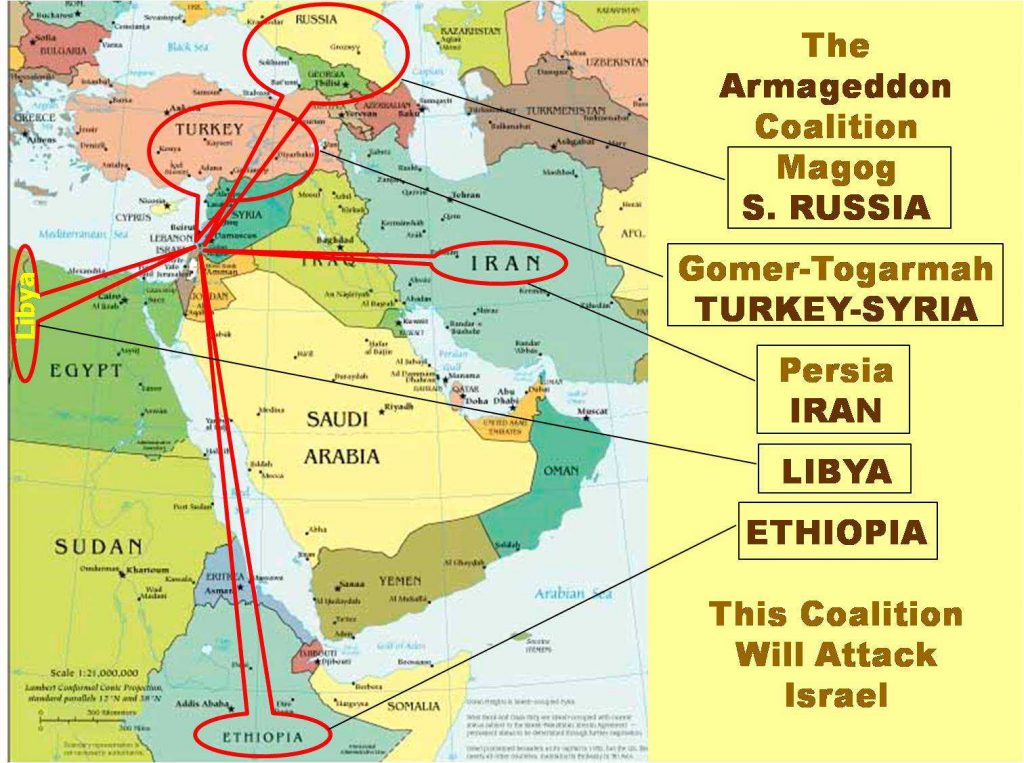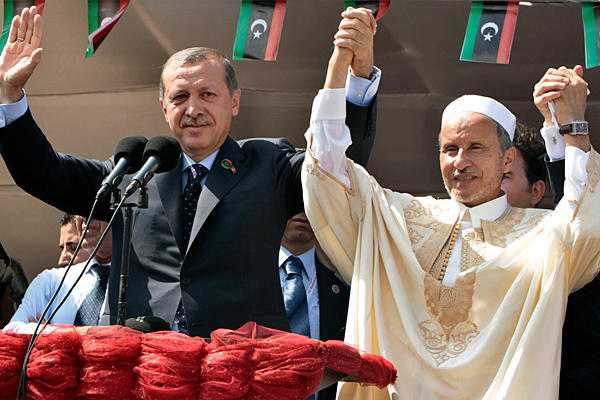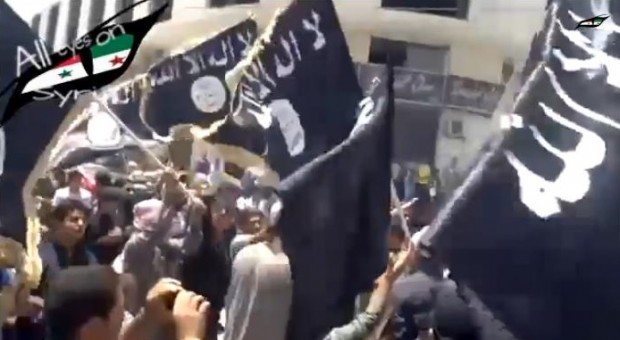Rarely, in the Arab Spring, has a new government taken power by force of arms in less propitious circumstances. So far Libya is the first. Now that the dueling speeches are over, Muammar Gaddafi and his adversaries clearly have a morning-after crisis. Gaddafi is at large, on the run. That could trigger unintended consequences. That is why his foes have declared that his capture dead or alive is their top priority. Gaddafi’s military defeat has done nothing to slow his growing international isolation.
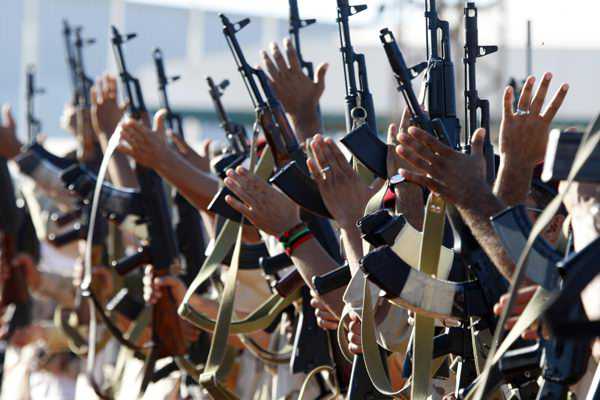 |
| Libya fighters raise their assault riffles in celebration for the arrival of Libyan Transitional National Council chairman Mustafa Abdel Jalil at Metiga airport in Tripoli
|
The refusal by the National Transitional Council (NTC) during its campaign to oust Gaddafi from office to spell out the challenges that face the country has been particularly damaging. That is in large measure because it has left many Libyans believing that every Libyan has the right to spell out his or her views on matters of post-Gaddafi Libyan politics. The NTC leaders have declared that Libyans are of a moderate Islamic disposition — “Al-Islam Al-Wasati” or middle-of-the-road, as they describe it. They should in addition take the principles they enunciated on national security and fundamental religious freedoms and convert them into terms of reference for the new post-Gaddafi democratic Libya.
The NTC is on firmer ground in their criticism of the more militant factions of the anti-Gaddafi forces whom Mustafa Abdel-Jalil, the NTC chairman, described as constituting only five per cent of the Libyan people. He timed his arrival in Tripoli for a rally this week in Martyr Square, formerly Green Square.
It appears that the leading proponents of Islamist orientation of the NTC are those associated with the Muslim Brotherhood in the Arab world. While Abdel-Jalil is entitled to air his views, not all his arguments convince. At the heart of his claims is that Libya will be run on the “Turkish model”.
In sharp contrast, the nuances of Gaddafi’s anti-imperialist ideological outlook have been overwhelmed by the sound bytes. The ousted leader’s detractors believe that the NTC deserves praise for exposing the shabby and shoddy regime of the ousted Libyan leader, a man who did his utmost to destroy civil society in Libya.
Of course, Gaddafi was not elected to office. He usurped power in a military coup d’etat. The leaders of the NTC are determined to demonstrate that they are not following in Gaddafi’s footsteps. They insist that free and fair elections will be held within a year, eight months if possible. However, is it fair to claim that Gaddafi’s harrumphs at the hypocrisy of Western-style multi-party pluralism and democracy are nothing more than a fanatic assault on the coalition of forces that form the NTC. His admirers and well-wishers point out that his political career was something of pluck and personal discovery and that all his famous speeches, the infamous Green Book and his outrageous costumes were all tempered by a self-mocking humour.
Now the NTC’s Liberation Army seeks to extend its authority to the south of the country where support for the ousted Libyan leader Muammar Gaddafi is still strong. More glaringly, under the NTC’s proposed parliamentary system, it would be absurd to expect the disparate factions that constitute the NTC to enact only policies spelt out by the Western democracies.
The latter could be in for a rude awakening. A country that has been run by an iron-fisted autocratic ruler for 42 years cannot become a viable democracy overnight. It is undeniable that the NTC has important national security interests in recognising and buttressing aspects of Muslim jurisdiction into the post-Gaddafi political establishment in Libya. The political demise of the supposedly socialist secularism espoused by Gaddafi is a forgone conclusion. But maybe this was a proper outcome of the state capitalism actually practiced by the Gaddafi regime.
Somewhat capriciously, Gaddafi’s son Saidi and seven of his father’s senior and trusted aides surfaced in neighbouring Niger to seek political asylum. Apparently, Tuareg tribesmen who have been loyal to Gaddafi assisted them in their escape from Libya as he championed their cause for many decades. Saidi and his entourage fled Libya to the oasis city of Agades, a Tuareg stronghold. Saidi’s inauspicious exit accentuates the NTC’s problem with Libya’s porous borders.
However, the authorities in Niger insisted that Saidi move on to the country’s capital Niamey. It is not clear whether Saidi will remain in Niger or join his sister Aisha, his mother Safiya and two brothers Mohamed and Hannibal in Algeria. Seif Al-Islam, is still believed to be in Libya — either in the southern Libyan desert city of Sebha in Fezzan, Libya’s southernmost province or in Sirte, Gaddafi’s hometown. Seif Al-Islam’s double failure to pursue his political raison d’etre of inheriting his father’s ideological mantle invites the conclusion that his condition is hopeless. His reaction to NTC advances was not merely hostile, but positively malevolent.
The NTC stresses that treating Seif Al-Islam with benign neglect would be a grave mistake. This is in part due to irreconcilable political differences between Gaddafi and his foes. Then by a familiar rhetorical ploy Gaddafi could endure as the idealised Third World leader with his old-fashioned anti-imperialism from outside the grey world of Westernisation.
Tolerance was not universal under Libya’s ousted leader. In their attempt to heal the political rifts resulting from the civil war, the NTC is trying to portray itself as tolerant. Many of Gaddafi’s henchmen have surrendered to the NTC authorities. Amnesty International has warned about atrocities committed by the NTC’s Liberation Army. However, Western governments by and large believe that the NTC has been relatively generous and restrained.
The leaders of the NTC insist on punishment for the criminal elements in Gaddafi’s entourage. But they cautioned against unbridled vindictiveness, arguing that if there were any charges to be leveled against Gaddafi supporters, those charges were also to be the object of formal legal attention.
The NTC’s approach so far has been impeccably fair in form and apparent content as far as Gaddafi’s followers and hangers-on are concerned. Toleration has had to be relearned by a new generation of post-Gaddafi Libyans.
Any attempt by the NTC to replicate the so-called Turkish model must be squared with their purportedly Western liberal baggage.
The question is whether Abdel-Jalil can be the architect of a new Libya with civil society at its heart. According to a January 2010 US diplomatic cable from Tripoli exposed by WikiLeaks, Abdel-Jalil was noted as supporting US neoliberal policy, in particular US Commercial Law Development programmes in Libya. Is really he capable of drawing up a new social contract for the Libyan people?
Abdel-Jalil served Gaddafi for years as secretary of the General People’s Committee for Justice before he was dispatched by Gaddafi to Benghazi during the early days of the uprising in February to negotiate the release of hostages taken by militant Islamists. Once in Benghazi he switched sides, denouncing his former boss. The moral of the story is that the NTC’s posturing as a moderate Islamic democratic force cannot soberly be applied within the context of an inconclusive and unconvincing liberal agenda.

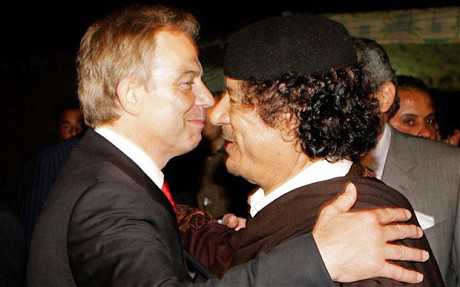
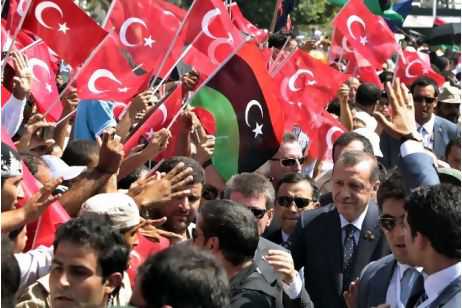
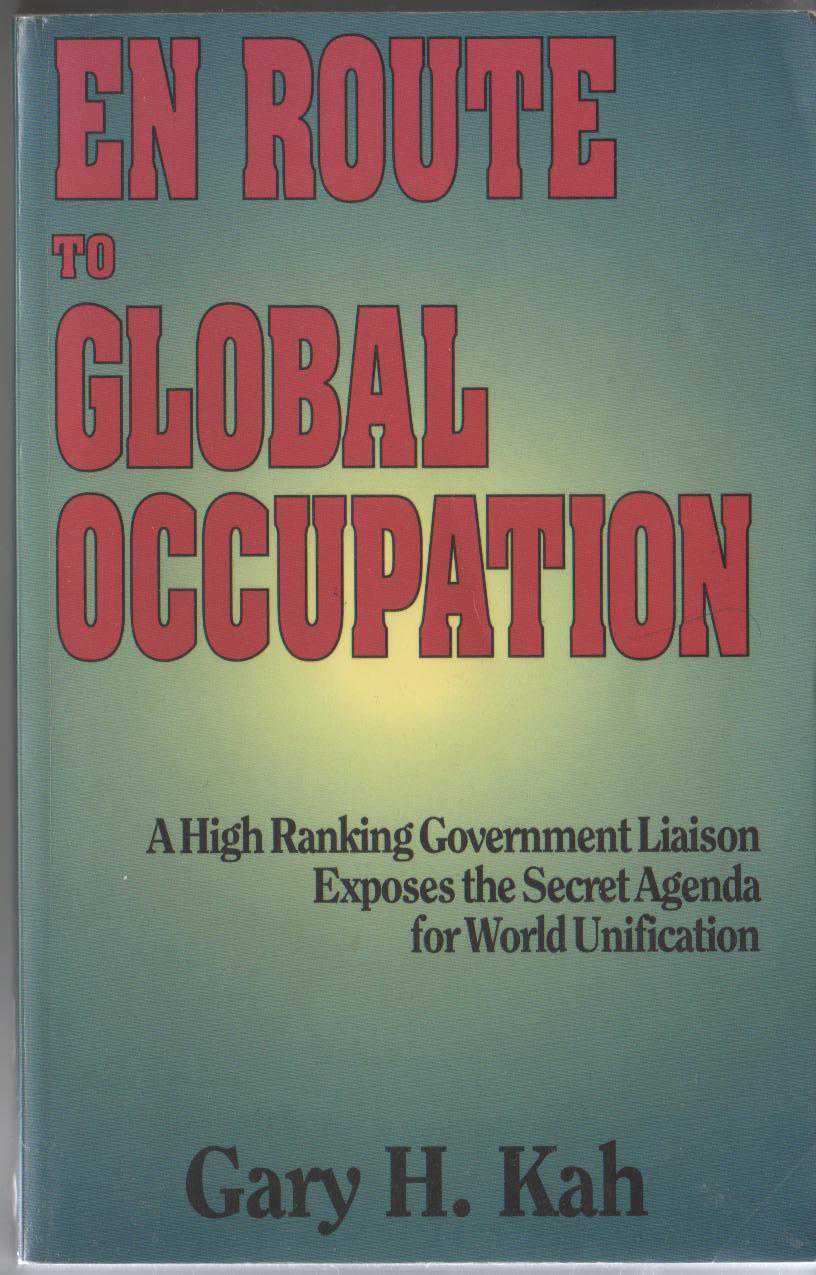
![En Route To Global Occupation [back] En Route To Global Occupation back](https://www.turkishnews.com/en/content/wp-content/uploads/2011/09/En-Route-To-Global-Occupation-back.jpg) (*) It is a pure coincidence that the most powerful figures of the Middle East are Freemasons? Have they been destined to trigger the conflict about which Albert Pike wrote? A prominent Arab Christian leader recently informed me that according to his contacts in Lebanon, King Assad of Syria and King Hussain of Jordan are both Freemasons. If this is true, we could be closer to the New World Order than people realize. (He was uncartain about whetherSaddam Hussain belonged to the same secret society.)
(*) It is a pure coincidence that the most powerful figures of the Middle East are Freemasons? Have they been destined to trigger the conflict about which Albert Pike wrote? A prominent Arab Christian leader recently informed me that according to his contacts in Lebanon, King Assad of Syria and King Hussain of Jordan are both Freemasons. If this is true, we could be closer to the New World Order than people realize. (He was uncartain about whetherSaddam Hussain belonged to the same secret society.)